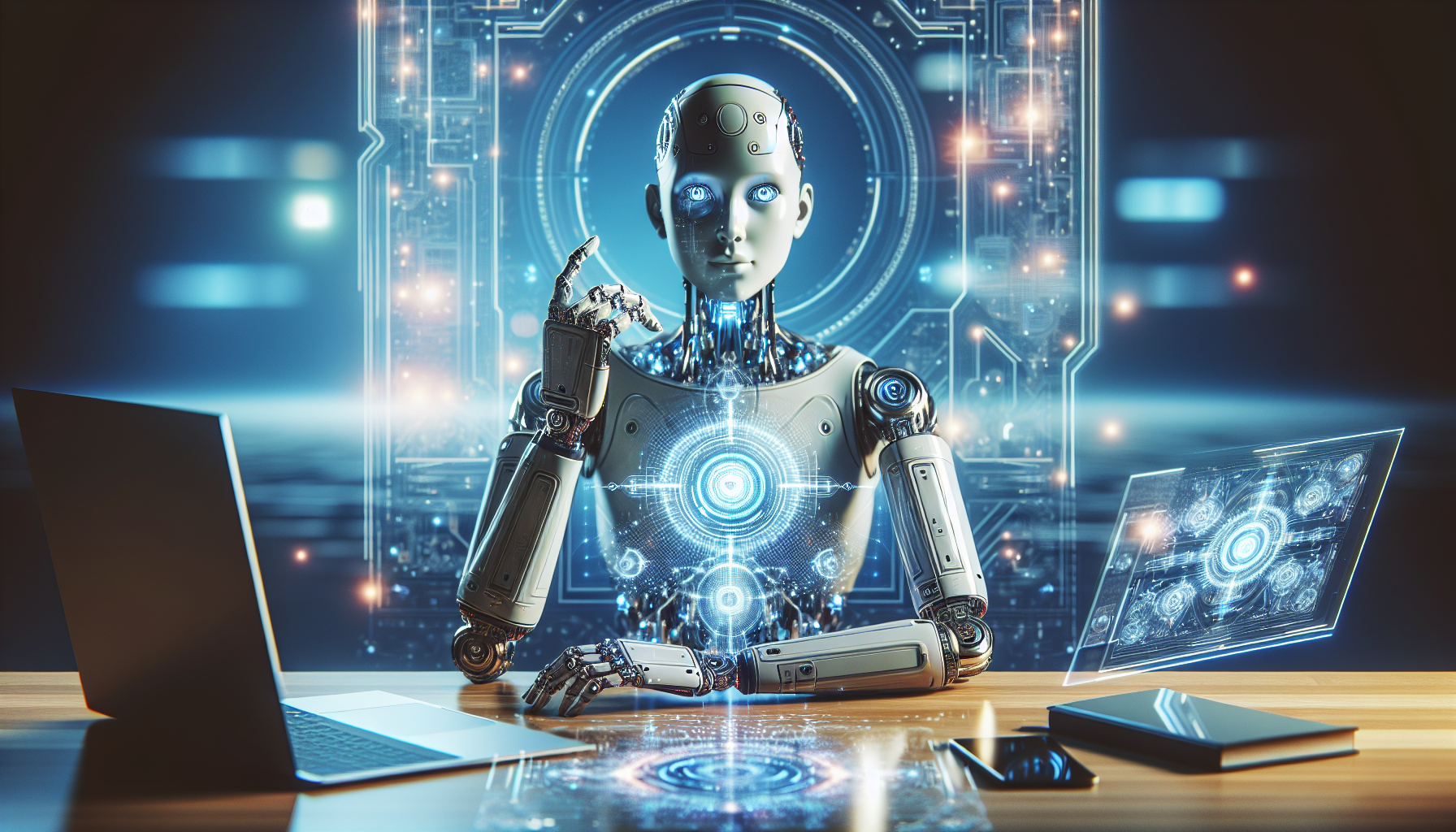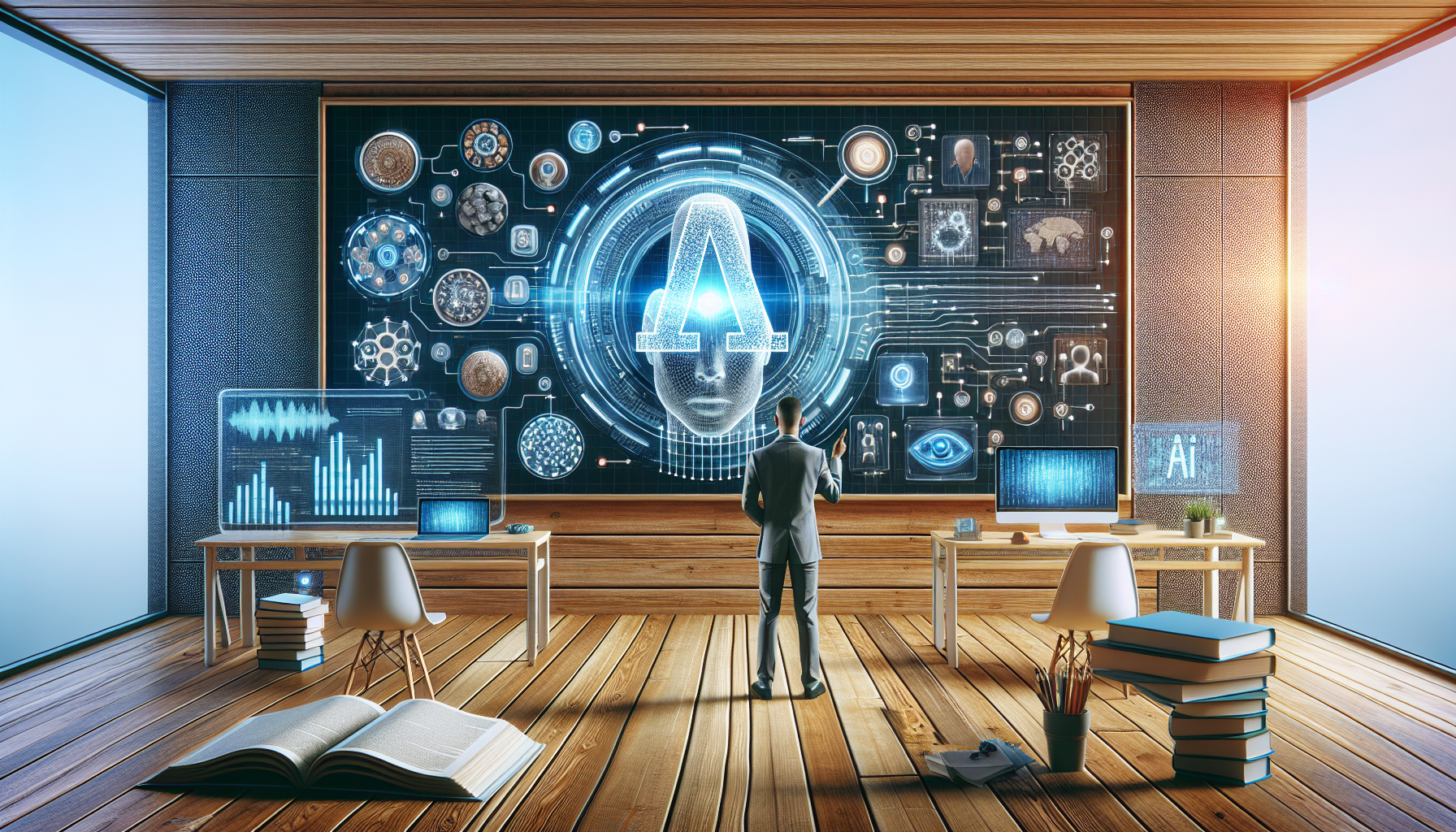
AI and Digital Marketing: How Future Targeting and Personalization Strategies Will Transform Business
November 3, 2025
Picture this: you're browsing online for a new pair of running shoes. You click on a website, and suddenly, the page seems to know your preferences. The styles you love, the colors you gravitate towards, and even your preferred price range—it's all there. It feels like the site is reading your mind. What's behind this magic trick? Artificial Intelligence is at the helm, revolutionizing digital marketing with hyper-targeted and personalized strategies that predict what you want before you even know you want it.
The buzz around AI in digital marketing isn't just hype; it's a glimpse into a future where marketing becomes more intuitive, more personalized, and frankly, more human. While some may fear a world where machines do the thinking for us, there's a powerful upside: AI has the potential to make digital marketing less about annoying pop-ups and more about meaningful interactions.
Let's delve into how AI is poised to redefine targeting and personalization strategies in the marketing sphere and what this means for businesses and consumers alike.
The Power of Prediction
One of the most exciting aspects of AI in digital marketing is its predictive capabilities. Imagine a world where marketers can anticipate a customer's next move, crafting campaigns that are not only reactive but proactive. This isn't about bombarding consumers with irrelevant ads; it's about using data to understand their behaviors, preferences, and needs on a granular level.
AI algorithms analyze vast amounts of data at lightning speed, uncovering patterns and insights that humans could never identify on their own. This data-driven approach allows marketers to create highly personalized experiences, predicting what customers want and delivering it before they even ask. Personalized email campaigns, product recommendations, and even website content can be tailored to fit each user's unique profile, enhancing user engagement and boosting conversion rates.
Hyper-Targeted Marketing
Forget about broad audience segments. AI enables hyper-targeted marketing strategies that focus on individuals rather than groups. By analyzing data from various sources—social media, browsing history, purchase records—AI can create detailed profiles for each user. This enables marketers to tailor their messages with pinpoint accuracy, reaching customers with the right message at the right time.
Consider the potential for dynamic pricing models, where the price of a product changes in real-time based on demand, consumer behavior, and even weather conditions. AI can help businesses optimize pricing strategies, ensuring competitiveness while maximizing profits.
Personalization at Scale
Personalization has always been the holy grail of marketing, but the challenge has been doing it at scale. AI makes it possible to deliver personalized experiences to millions of users simultaneously. Machine learning algorithms can dynamically adjust website content, advertisements, and even customer service interactions based on a user's specific profile.
For instance, chatbots driven by AI can provide personalized recommendations and support, making interactions feel more human and less mechanical. These bots learn from each interaction, becoming smarter and more efficient over time, further enhancing the user's experience.
Ethical Considerations and Privacy Concerns
With great power comes great responsibility, and the use of AI in digital marketing is no exception. As technology becomes more sophisticated, ethical considerations around data privacy and consent become increasingly important. Consumers are becoming more aware of their digital footprints and are demanding greater transparency about how their data is used.
Marketers must strike a balance between personalization and privacy, ensuring that they respect consumer preferences while delivering personalized experiences. This means implementing robust data protection measures and being transparent about data collection practices. Building trust with consumers is crucial in a world where data breaches are a constant threat.
The Human Touch
Despite the incredible capabilities of AI, there's one element that it can't replace: the human touch. As AI takes over more technical and repetitive tasks, marketers have the opportunity to focus on creativity, strategy, and building relationships with customers. Human intuition and empathy remain critical components of successful marketing.
AI can handle the heavy lifting—analyzing data and optimizing strategies—but the heart of marketing still lies in understanding and connecting with people on a human level. The future of digital marketing is a harmonious blend of AI-driven insights and human creativity, resulting in campaigns that resonate with consumers on a deeper level.
As we look to the future, the integration of AI into digital marketing strategies presents both exciting opportunities and significant challenges. How will businesses navigate this brave new world? Perhaps the real question is, how will consumers respond to a world where marketing feels more like a conversation and less like a sales pitch? The journey is just beginning, and it's sure to be an intriguing one.


